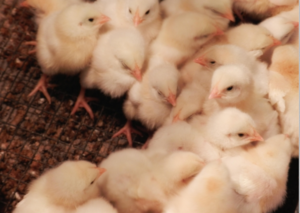Firm in tainted feed incident says FDA claims disputable

The US Food and Drug Administration (FDA) had sent the recycling company a warning letter in April, where it alleged the firm intentionally misrepresented industrial processing waste as soy oil from a large food manufacturer in a shipment to an animal feed distributor in September 2014.
The FDA said the animal feed product contained high levels of lascadoil, which is a combination of oleic acid, soy oil, and lasalocid sodium, a compound used in animal drugs.
And the federal agency's warning letter noted how this was a repeat of a previous violation by Shur-Green Farms. The soy oil product had already been implicated in the contamination of feed and the death of 57,000 turkeys in August 2014 along with losses totalling $1 million for US poultry producer, Sietsema Farms.
The FDA asked the company to notify it, in writing, of the actions it has taken to ensure those breaches did not recur.
Shur-Green response
Following the filing of a Freedom of Information Act (FOIA) with the FDA, FeedNavigator has seen Shur-Green’s response to the accusations.
The communication from the firm, filed on 8 June, said that it takes “regulatory compliance extremely seriously” and is committed to addressing the FDA’s concerns “adequately and expediently”.
On October 23 last year Shur-Green Farms issued a voluntary recall, with the assistance of the FDA, of lots of soy oil containing Lascadoil. The company said its decision to recall the product was the result of turkey deaths.
Its June 8 letter states that it has ceased selling the products subject to that recall, and it will not sell those in the future. “As a result, we feel that the issues raised in your warning letter are largely moot,” said Shur-Green.
The company said that even though “it does not admit any fault or that any violation of the Food, Drug, and Cosmetic Act has occurred, it is, nevertheless, committed to continuing to improve its business practices and adhering to the highest standards of industry conduct.”
It also said it welcomes the FDA’s input into how it can improve its compliance and commitment to FDA regulations in the future.
Investigation
The FDA and the US Department of Agriculture (USDA) have been carrying out a joint investigation into the August 2014 contamination incident, where turkeys at Sietsema Farms exposed to the feed tainted with Lascadoil died before they made it to market.
The two agencies worked closely with the Michigan Department of Agriculture and Rural Development (MDARD) over the turkey deaths.
James Averill, Michigan state veterinarian and director of the animal industry division of MDARD, briefed that state’s commission on agriculture on 21 January 2015 on the various actions taken by interested Michigan parties to contain the incident last summer.
His briefing was said to be the first time the case was made public.
And, Jennifer Houlton, director of communications for MDARD, told FeedNavigator earlier this year:
“This contamination incident underlines the importance of having a state feed testing program. The rapid actions of MDARD, in collaboration with other agencies, ensured the supply of safe food in the state.
Essentially, MDARD identified a safety issue in August, and, as part of our investigation process, it became evident that feed was the only common denominator between the birds.
We notified the FDA and the USDA of a possible toxicity related to feed and also to the high level of Lasalocid, an animal drug that is approved for use in poultry to prevent coccidiosis.
Upon further inquiry, the MDARD investigators discovered a link between the turkey contamination incident and the detection of adulterated grease in swine feed.”
Lasalocid levels
Lasalocid, which is not approved for swine, was detected in samples of that grease.
Averill’s report shows that the safe dosage level regarding the use of Lasalocid in turkey feed is 68 to 113 grams per ton but levels found in the dead turkeys at Sietsema Farms were much higher than that.
And the samples of swine feed from the same farm revealed the presence of up to 1,510 grams per ton of the drug, which raised the red flag for investigators.







